A few months ago, Disney milked many fans out of a few dollars more by releasing the same movie they released 25 years ago, just with CGI. The live-action remake of The Lion King added nothing new that wasn’t already in the near-perfect original, while the photorealistic visuals failed to recapture the magic and emotion of the characters.
Back in 1994, when the original hit theaters, it was a cultural landmark. The remake is more of a sign of a culture in decline. Initially, Disney had no faith in the original Lion King and assigned its B-team to work on it. Here's more information as well as some other behind-the-scenes facts about The Lion King (1994).
10 Disney had its B-team working on the movie while the A-team made Pocahontas
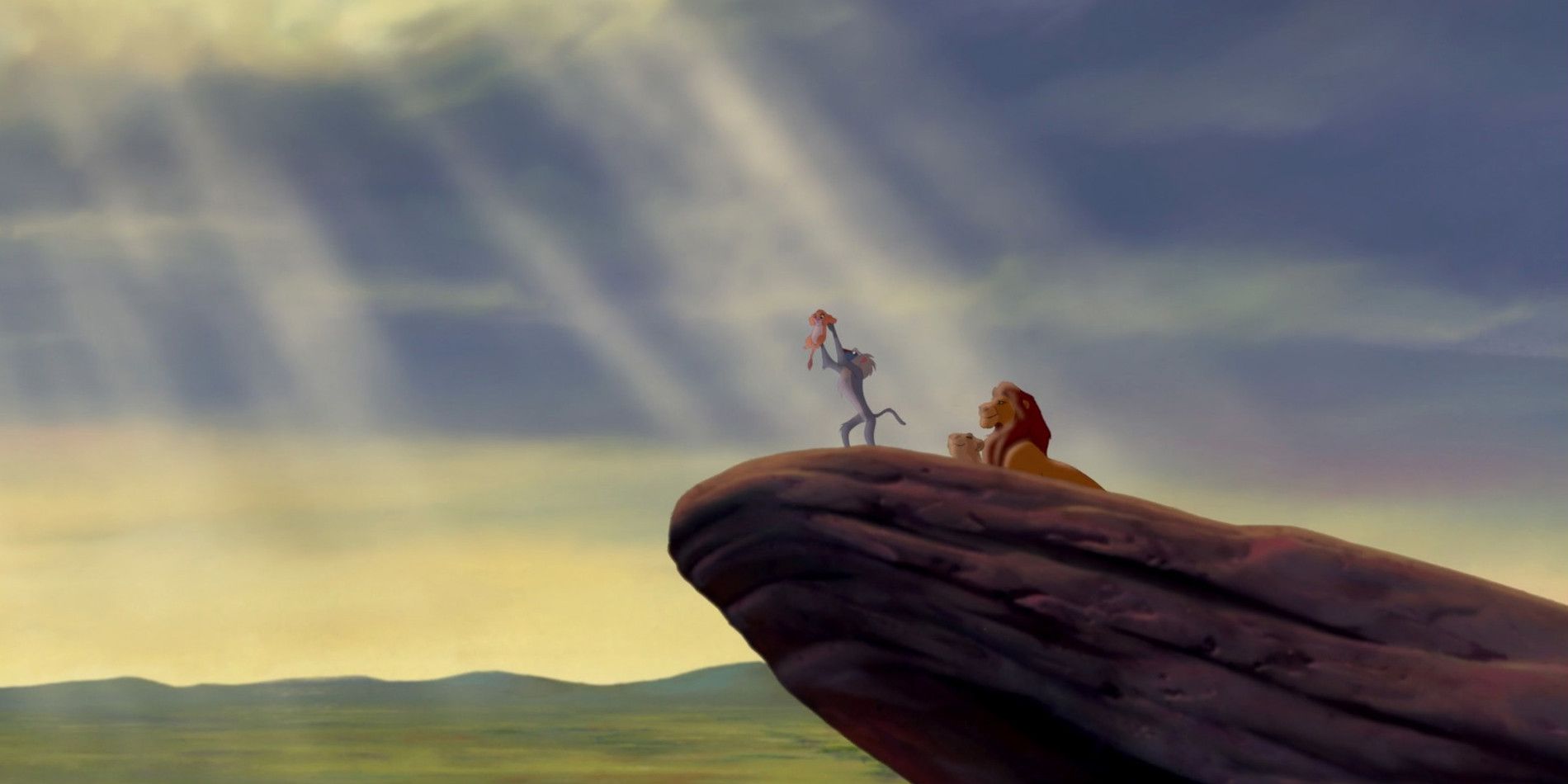
When Disney went into production on The Lion King, the studio hired its B-team to work on it, while the A-team worked on Pocahontas. Then Disney chief Jeffrey Katzenberg had little faith that The Lion King could be a success, so he wanted to use the studio’s resources primarily to produce Pocahontas, which he believed had more potential at the box office and had a better chance of landing an Oscar nomination for Best Picture, as Beauty and the Beast had.
Ironically, The Lion King was a record-shattering box office hit, as well as a critical darling, while Pocahontas had a more disappointing box office run and received mixed reviews.
9 Some A-list names were considered for the role of Mufasa
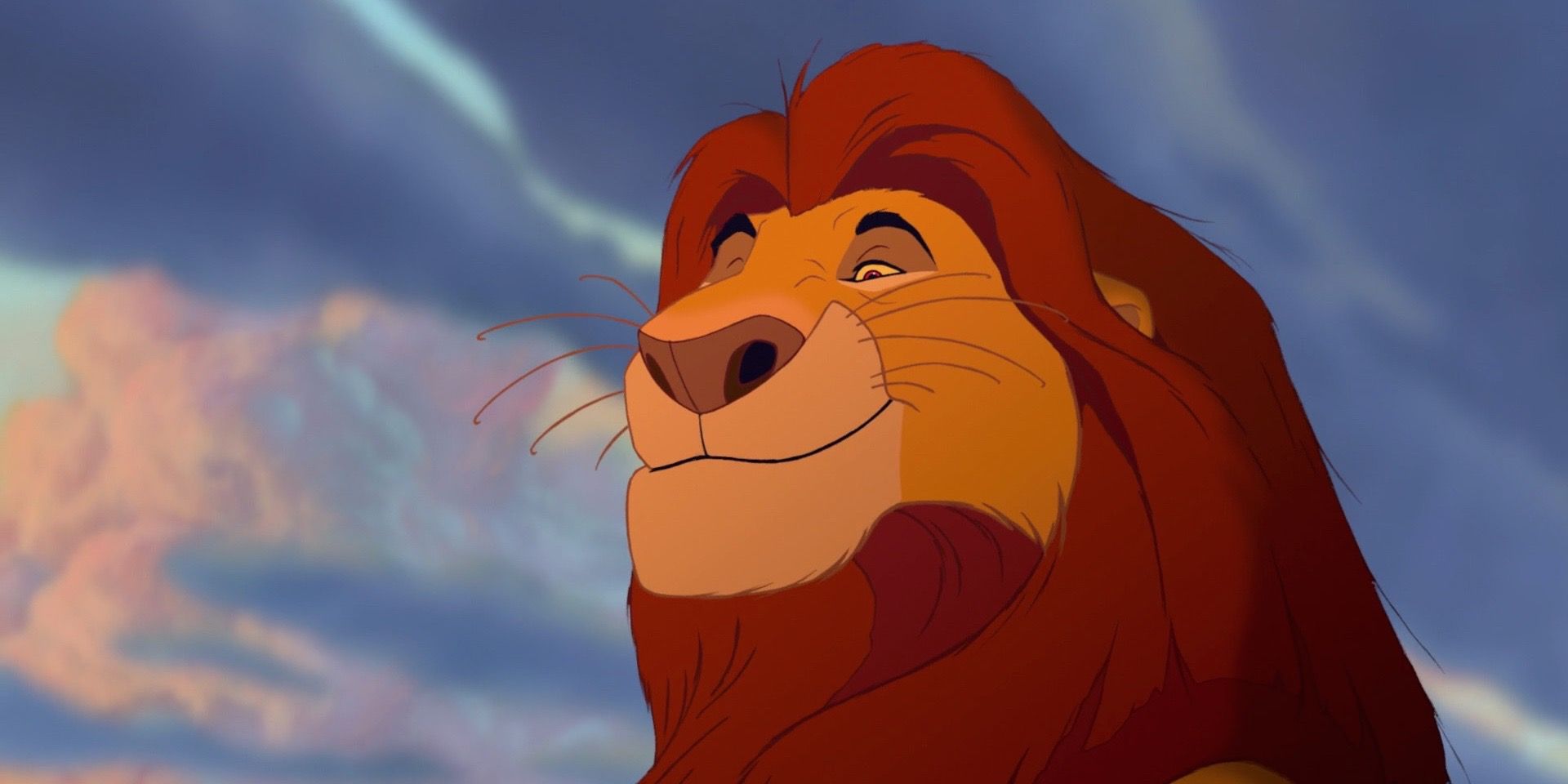
James Earl Jones turned out to be so perfectly suited to the role of Mufasa that the casting team behind the 2019 remake brought him back to play the character again, unable to find anyone to replace him.
But before Jones was chosen, Liam Neeson and Timothy Dalton were both up for the part. Neeson would end up providing the voice of a lion, Aslan, in The Chronicles of Narnia franchise, while Dalton would end up appearing in Disney-mounted animation with a role in the third and fourth Toy Story films. The screenwriters working on The Lion King had originally envisioned Mufasa with the voice of Sean Connery.
8 The wildebeest stampede took three years to animate

Mufasa’s death is perhaps the most heartbreaking moment in The Lion King – or, arguably, any Disney movie. He’s pushed off a cliff by Scar and falls into the path of a wildebeest stampede, where he is trampled to death in front of his horrified infant son. This stampede took the animation team a total of three years to animate.
Disney’s CGI department had to develop entirely new software to be able to animate a herd of CG wildebeest all running alongside each other. The tricky part was animating hundreds of computer-generated stampeding animals that didn’t bump into each other.
7 In early script drafts, Mufasa and Scar weren’t related
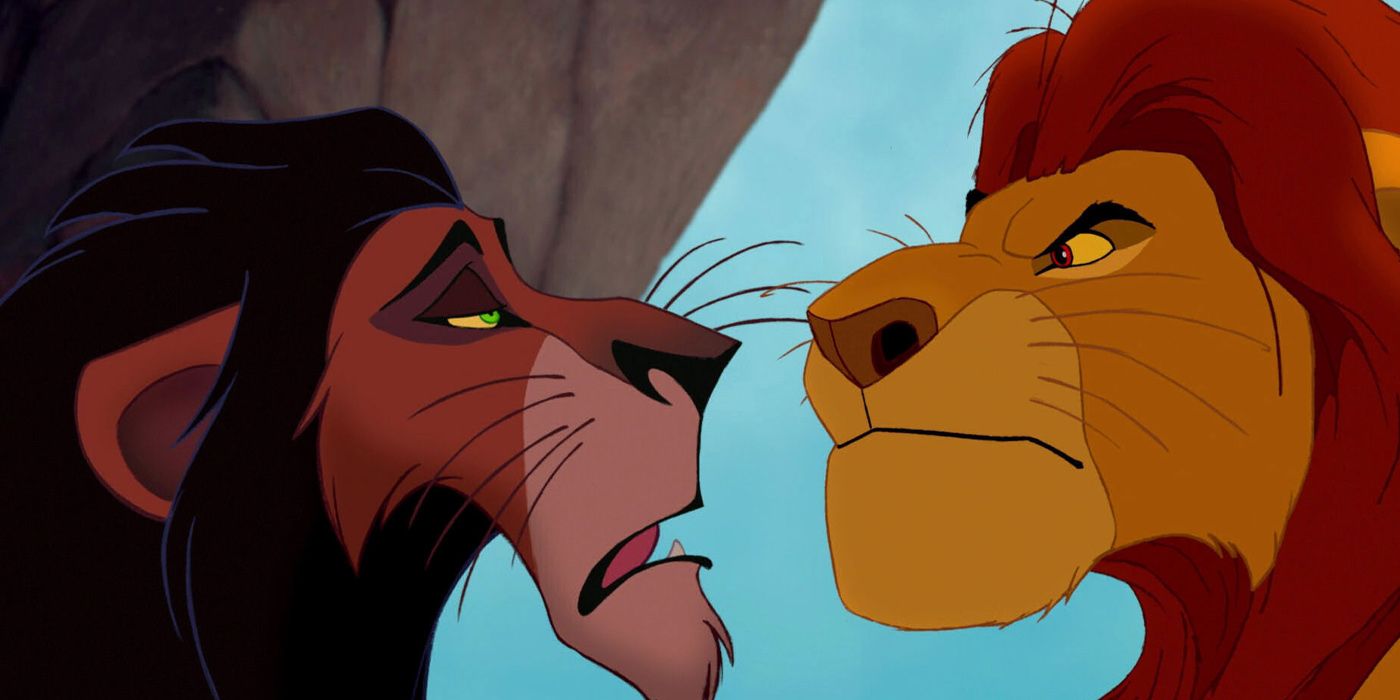
In early drafts of the script for The Lion King, Mufasa and Scar weren’t related. The story was first developed as a war between lions and baboons, so Scar was conceived as a baboon who threatened Mufasa’s position as a leader. When the story was tweaked to have an internal conflict amongst a pride of lions, Scar was retooled as a rogue lion who wasn’t related to Mufasa and just wanted his throne.
The writers eventually altered Scar’s characterization to be Mufasa’s brother, as they felt that this would create a more interesting conflict. The reason why Scar looks so different from Mufasa and Simba is that he wasn’t designed to be related to them.
6 The movie has been accused of plagiarism
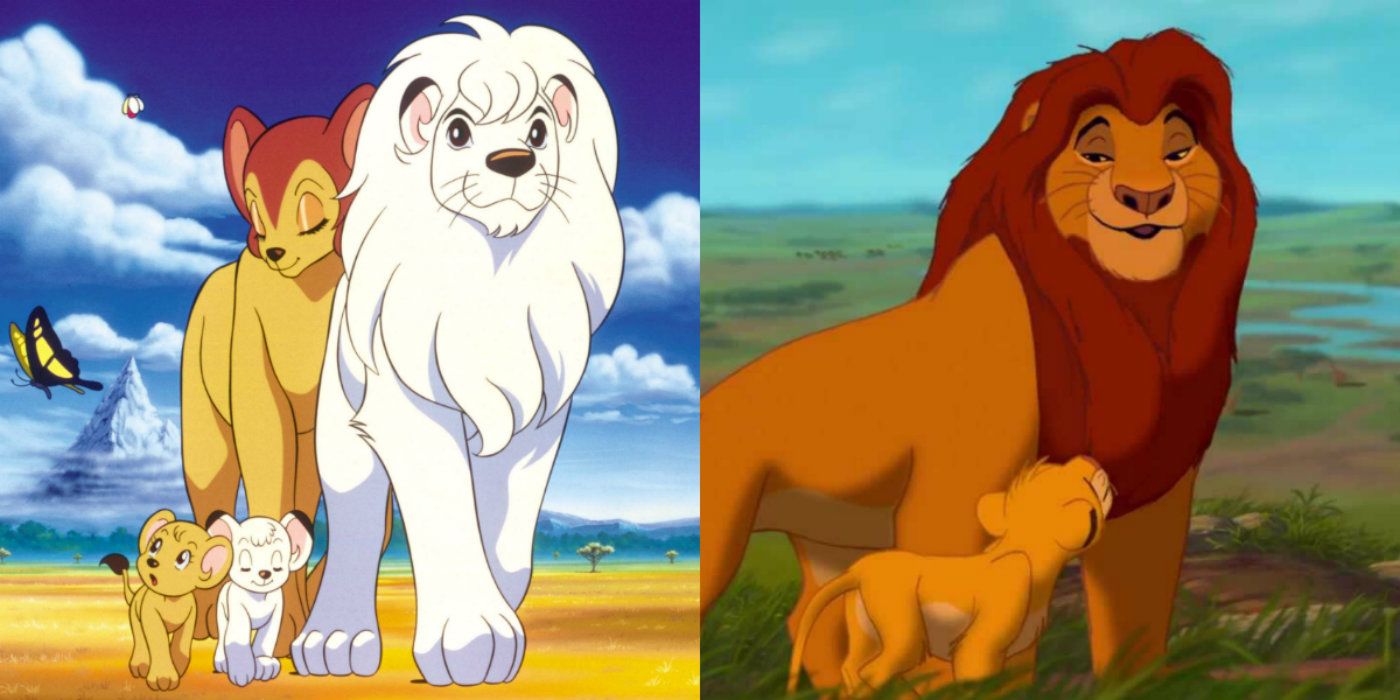
The plot of The Lion King is widely acknowledged to be influenced by William Shakespeare’s seminal play Hamlet, as well as various stories from the Bible. However, some critics have noted that it shares similarities with another story, too: Kimba the White Lion. Disney has insisted that these comparisons are merely coincidental, but the similarities are so blatant that the makers of Kimba the White Lion have even taken legal action.
When Matthew Broderick signed on to play Simba, the similarities were so obvious that he thought that The Lion King was an American remake of Kimba the White Lion.
5 A ton of British comedians were considered to play Zazu
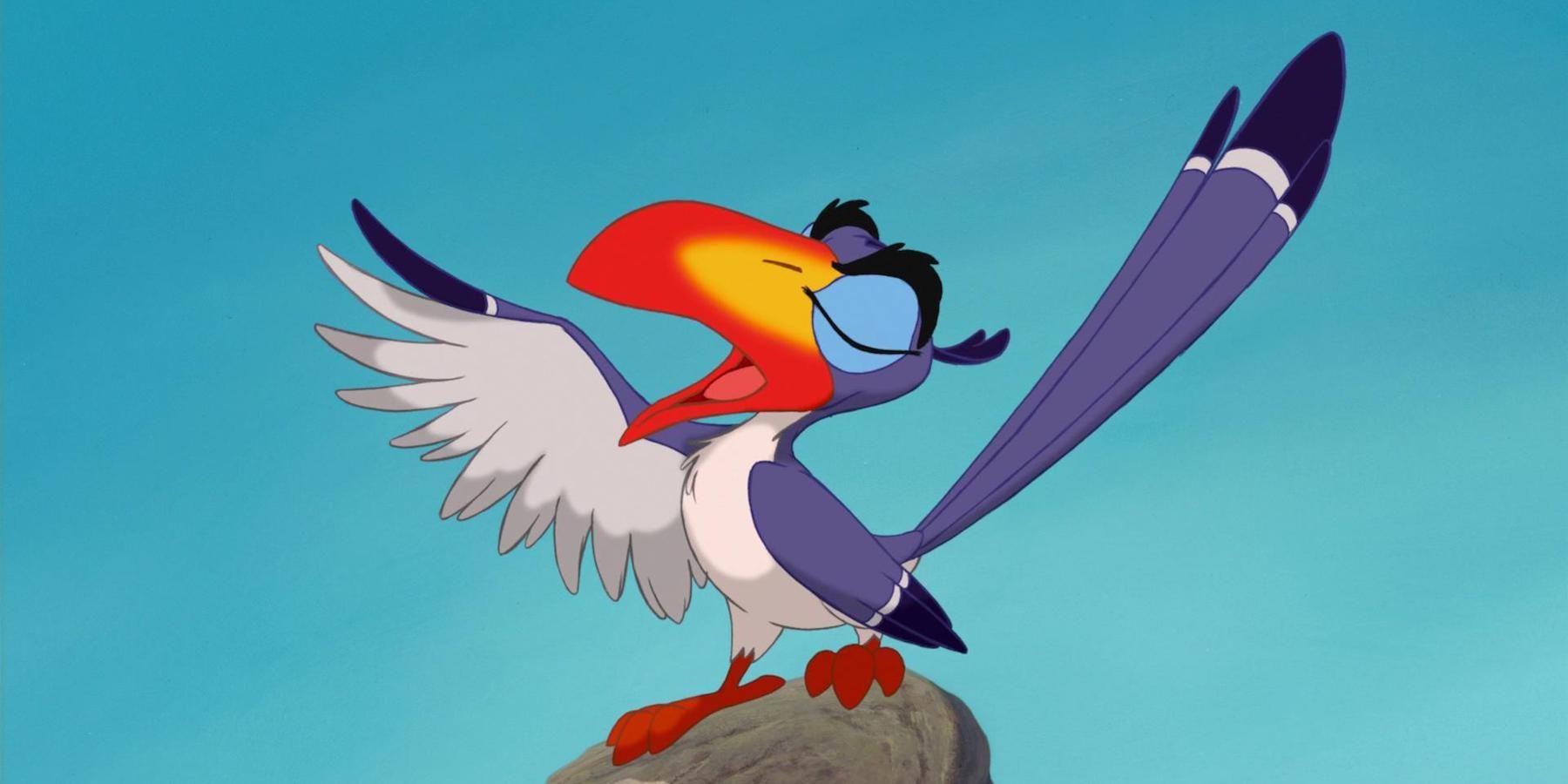
The characterization of a pompous British sidekick that would eventually become Zazu was initially conceived for two previous Disney characters: Sebastian in The Little Mermaid and Iago in Aladdin. Although it didn’t work for those movies, Disney finally found room for it in The Lion King.
Before Rowan Atkinson was selected to provide Zazu’s voice, a boatload of British comedians were considered for the role. These included Dudley Moore, Peter Cook, former Monty Python alum John Cleese, who chose to voice Jean-Bob in The Swan Princess instead (big mistake), Spike Milligan, Ronnie Barker, Ronnie Corbett, Vic Reeves, Only Fools and Horses’ David Jason, and Bill Oddie.
4 Richard Curtis and Ben Elton were offered the chance to write the script
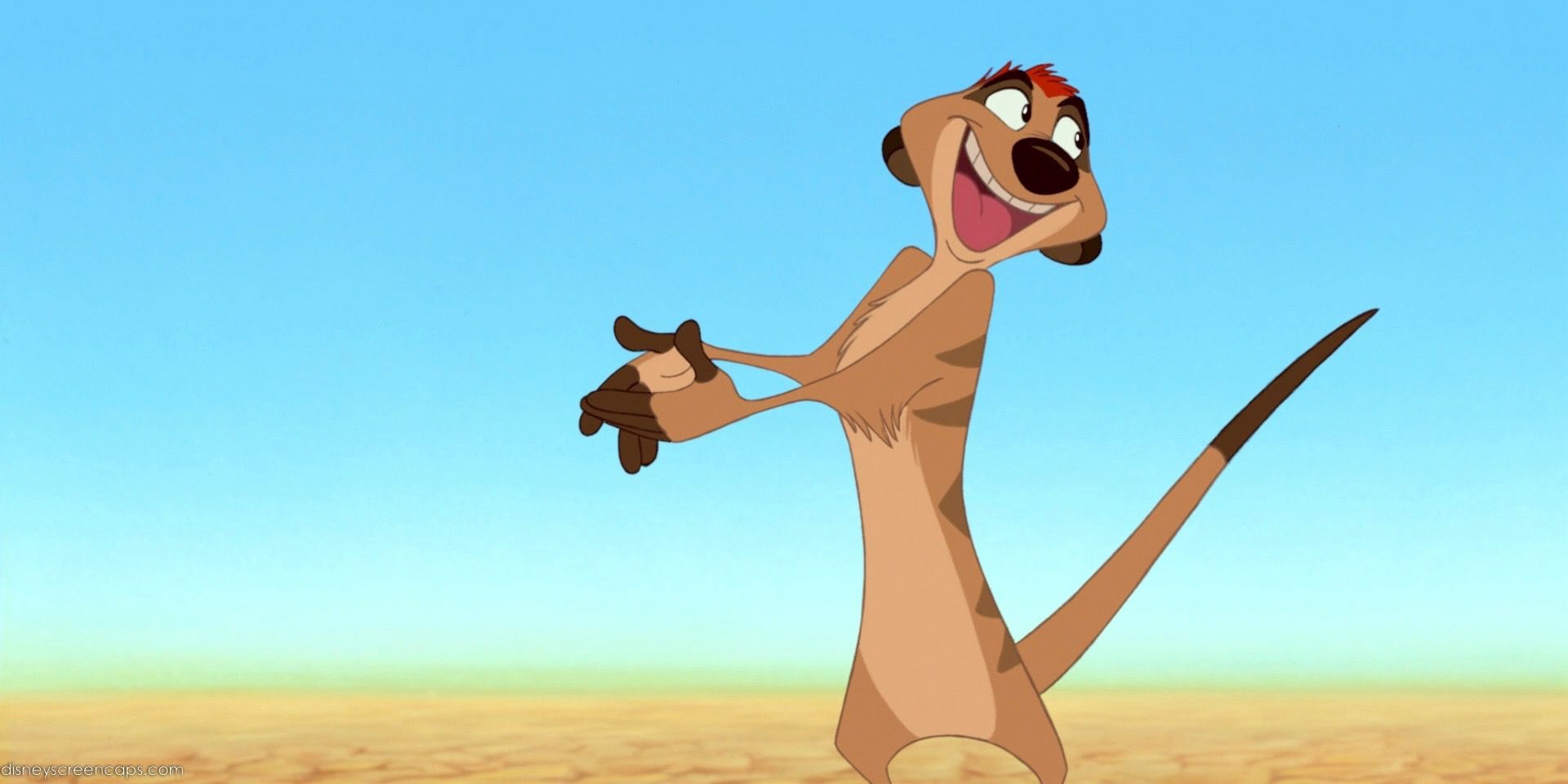
When The Lion King first went into development, Disney approached Richard Curtis and Ben Elton (who had collaborated with Rowan Atkinson, the voice of Zazu, on such classic British sitcoms as Mr. Bean and Blackadder) with an offer to write the film’s script. The duo were working on their own projects at the time, so they turned down the job.
Three writers are credited on the final screenplay, while a whopping 18 writers are listed as having worked on the film’s story. Disney worked for years to crack the script for The Lion King. Even directors Roger Allers and Rob Minkoff and producer Don Hahn are acknowledged to have contributed a lot of material to the script.
3 The Lion King was originally set in the jungle
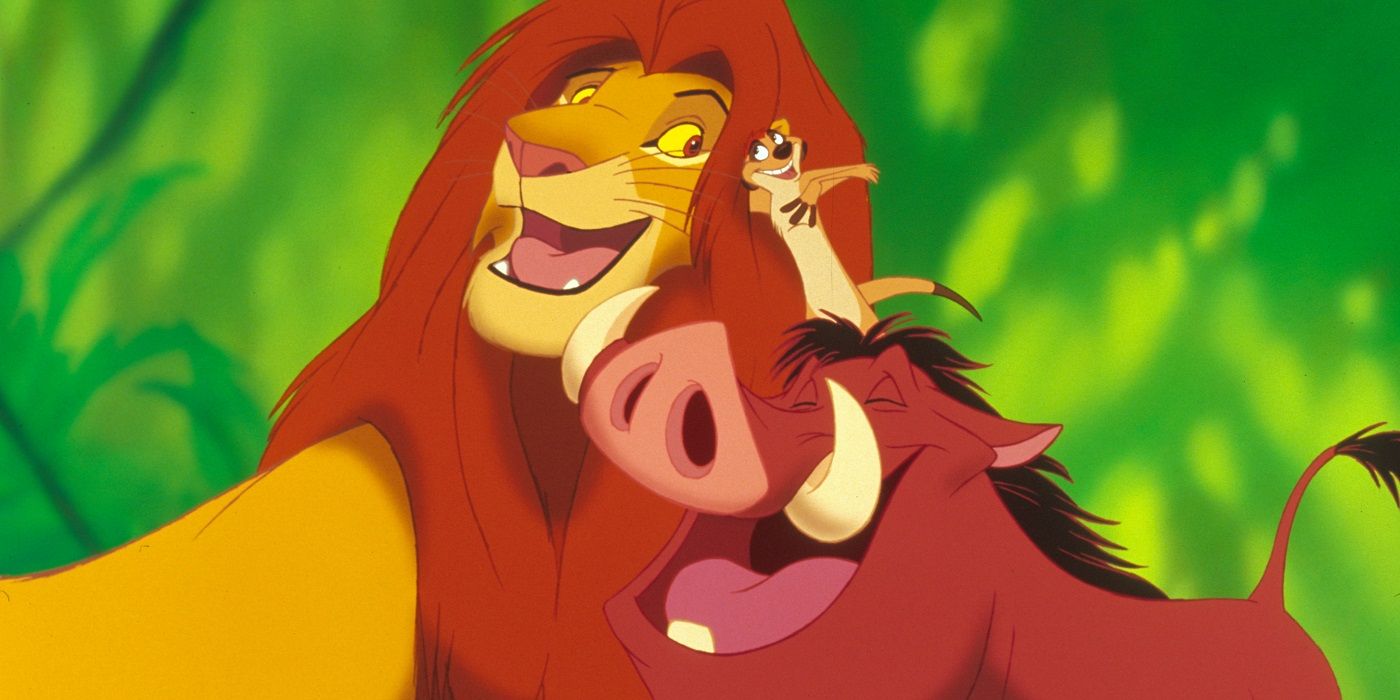
Originally conceived as a story about African lions living in the jungle, The Lion King’s initial title was King of the Jungle. This was changed when the production team discovered that African lions don’t actually live in the jungle.
However, the jungle setting did make it into the second act of the film, as Simba retreats into the jungle where he’s raised by Timon and Pumbaa after his father dies. The phrase “King of the Jungle” still appears on a lot of merchandise relating to The Lion King, such as branded t-shirts, that can be found at the Disney Store.
2 Every nefarious-sounding actor in Hollywood was considered for the part of Scar
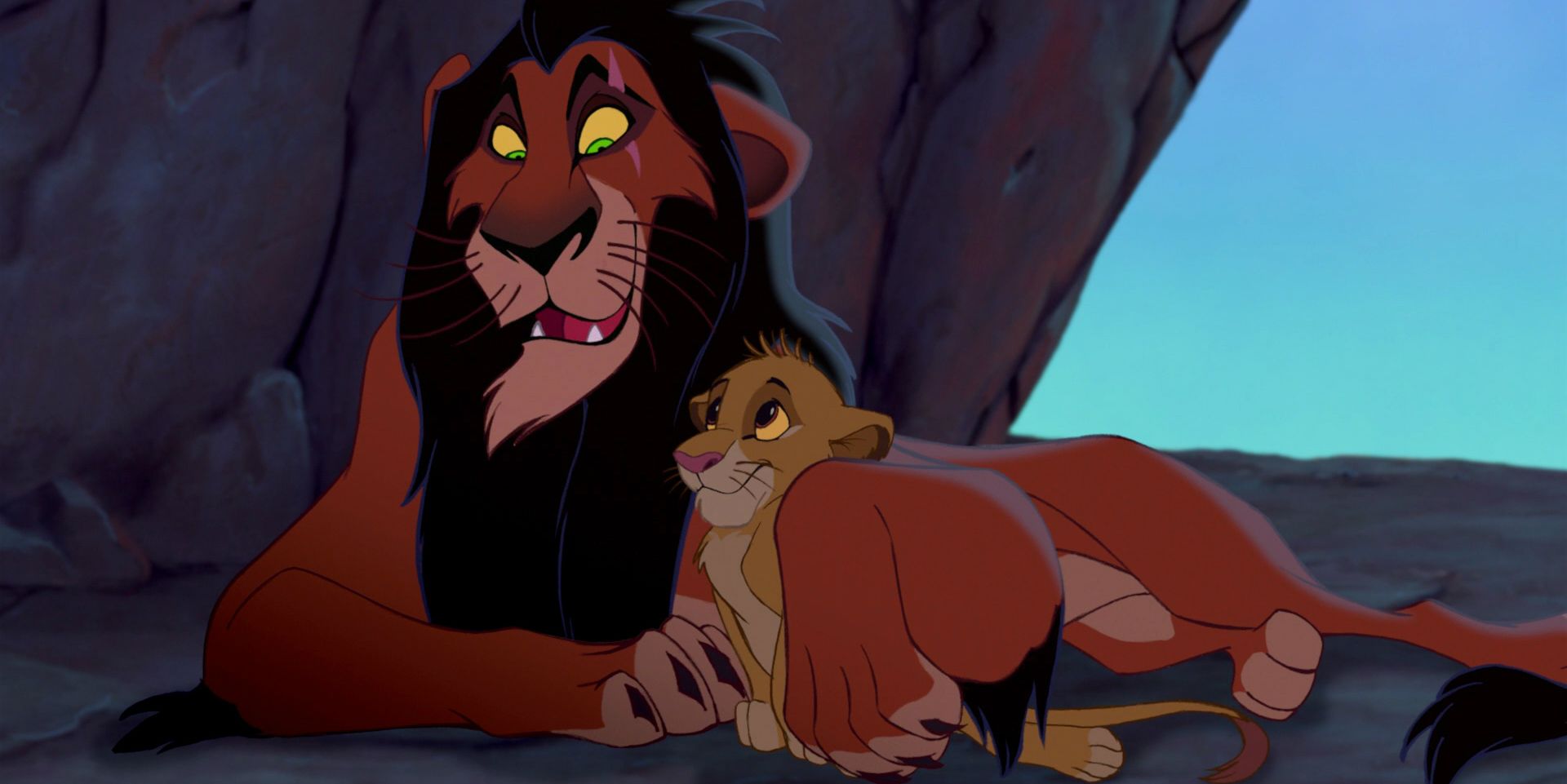
When it came to casting Scar in The Lion King, the Disney people basically looked at every actor in Hollywood with a deep, brooding, nefarious-sounding voice. These actors included James Caan, Tim Curry, Robert Duvall, Ray Liotta, and Malcolm McDowell.
In the end, obviously, they went with Jeremy Irons, who turned out to be the ideal choice for the part. Irons was skeptical about taking on a comedic role right after playing a dramatic role in 1990’s Reversal of Fortune, but when he saw how well-developed Scar was as a character, he changed his mind and decided to take the role, and even ended up contributing some lines of dialogue.
1 “Can You Feel the Love Tonight?” almost wasn’t in the movie
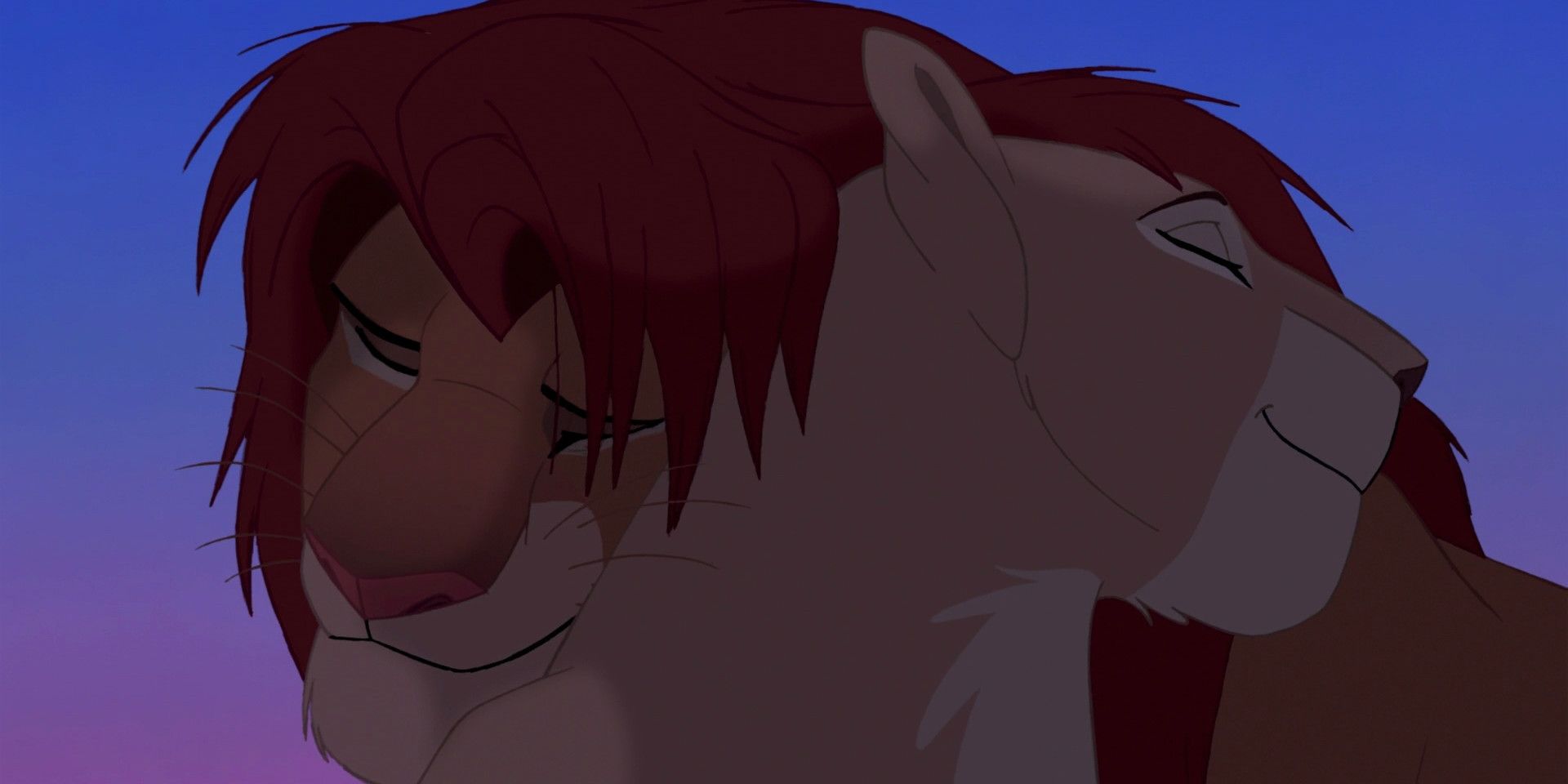
A few weeks before The Lion King premiered, Elton John was treated to a special preview screening, where he was dismayed to discover that “Can You Feel the Love Tonight?” had been left out of the film. He campaigned to have it put back into the movie, and eventually, Jeffrey Katzenberg relented.
At first, Disney tried to have it sung by Timon and Pumbaa but later changed their minds, although Timon and Pumbaa did get to perform the final verse. “Can You Feel the Love Tonight?” went on to land Elton John and Tim Rice an Academy Award for Best Original Song.
from ScreenRant - Feed https://ift.tt/2tnolbf

0 comments:
Post a Comment